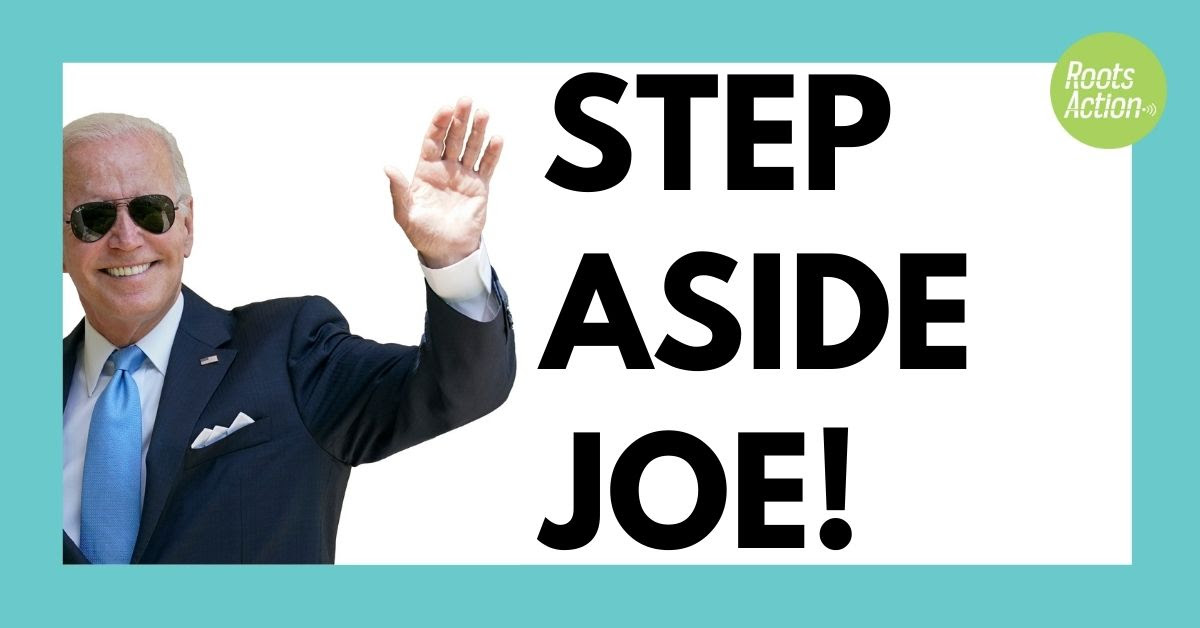I’ve always thought of the famous John Lennon refrain, “War is over/if you want it,” as mostly a thought experiment meant to shake us out of the learned helplessness that can lead to forever wars.
But in the case of the war in Yemen, the war really is over if we want. Everybody else directly or indirectly involved – Saudi Arabia, the UAE, the Houthis, China, Oman, Qatar, Jordan, etc. – appears to want to put the war behind them. A cease fire has held for more than a year, and peace talks are advancing with real momentum, including prisoner exchanges and other positive expressions of diplomacy. Yet the U.S. posture appears to be that we very much do not want the war to end – because our proxies have been thumped on the battlefield, and are in a poor negotiating position as a result.
Reading between the lines, the U.S. seems to be attempting to slow-walk and blow up the peace talks and trigger a resumption of hostilities, which we can then use to unleash another Saudi-led bombing campaign in the hopes of winning better terms when it comes to control of the strategically positioned Yemeni coastline.
Tim Lenderking, the U.S. special envoy for Yemen, has been offering up by far the most pessimistic comments on negotiations. Diplomats never say out loud exactly what they want, but Lenderking’s recent remarks leave little to the imagination. "I don’t expect a durable resolution – and we should not – to the nearly eight-year conflict in Yemen to happen overnight,” he said recently in the region. “A political process will take time and likely face numerous setbacks, but I continue to be optimistic that we have a real opportunity ahead of us for peace.” That sounds nice, but when decoding diplomacy, the key is to ignore the things that everybody is saying and focus instead on what distinguishes various positions from each other. Everybody, of course, says there is “a real opportunity ahead of us for peace,” because that’s a free thing to say. Opportunities for peace are always ahead of us! Sadly, always just out of reach.
The more important remark there is the prediction of “numerous setbacks” and the confidence that we “should not” expect “a durable resolution.”
"I don’t think we’re near the finish line yet,” Lenderking went on. “I think there is great challenges ahead. I think there is still a considerable amount of distrust among the parties, and there’s considerable division within Yemen’s society itself.”
In fact, Lenderking is attempting to wish “considerable division” back into Yemeni society–at the point of a Saudi bombing campaign. Like it or not, much of that considerable division has been resolved by the Houthis winning the war. But acknowledging that would give the US and Saudi-backed proxies, which operated largely out of luxury hotel rooms in Riyadh, no real position in the new Yemeni government. That’s why the U.S. keeps pressing for an “inclusive government,” the same phrase the U.S. has used with Afghanistan, demanding that in order for us to release the country’s foreign currency reserves, the Taliban must empower our proxies there (the warlords the Taliban already paid off to hand the country over to them).
In mid-April, as news of the Saudi-Iran-Houthi peace deal emerged, U.S. diplomats rushed to Saudi Arabia to top the brakes. Axios reported at the time that the Brett McGurk, a top envoy to the region, and Lenderking “underscored the U.S. support for Saudi Arabia’s defense against threats from Yemen or elsewhere and emphasized the need for forging broader regional integration and stability through a combination of diplomacy, deterrence, and new investment and infrastructure.” This saber rattling and talk of new security guarantees came just as hundreds of prisoners were being exchanged, and the world was celebrating the steps toward peace.
A State Department spokesperson, Vedant Patel, said that I was reading too much into the U.S. insistence on transitioning the talks over to the U.N. and making sure the deal is “comprehensive” and inclusive” before peace is reached. “I reject your premise that we’re hostile to these peace talks,” Patel said. “In fact, Tim reiterated our commitment to not just strengthening the UN brokered truce but also how we remain focused on helping the parties secure a new, more comprehensive agreement.”
But the U.S. knows that time is not on the Houthi’s side. A ceasefire is fine for Saudi Arabia, as it’s now free of Houthi drone and missile strikes. But Saudi Arabia is still inflicting a blockade on Yemen, preventing food, medical supplies and energy from entering the country at anywhere near the capacity needed for basic survival. In Sana’a recently, a charitable offering worth roughly $9 drew a crowd of hundreds to a local school. Houthi security forces, in a failed effort at crowd control, fired weapons in the air; a bullet reportedly hit an electrical box, sparking an explosion and a panicked stampede that left at least 78 people dead. The Houthis, for their own political and literal survival, need the blockade lifted. If the talks drag on for too long, the Houthis are likely to resume cross-border strikes. Everybody on all sides know that, which is why the Saudis appear eager to get to a final deal, while the U.S. keeps throwing up new conditions.
We can even take motivation out of the equation. Let’s assume that the State Department is not trying to blow up the peace talks, and earnestly believe longer talks will produce a more durable peace. As an objective matter, the longer the talks are delayed while the blockade remains in effect, the more likely it becomes that hostilities resume, the likelier it is that Houthis launch attacks across the border at Saudi Arabia, that Saudi Arabia responds with a devastating round of bombing – and then the US proxies gets a bigger chunk of Yemen in peace talks when they start up again amid the rubble.
If the U.S. wanted to reduce the risk of restarting the war, it could urge Saudi Arabia to lift the blockade without conditions, or could announce that it will not support a new round of Saudi bombing. The U.S. has resisted doing either.
On Thursday, a group of more than three dozen House Democrats sent a letter to the State Department urging the U.S. to make both of those commitments, urging U.S. diplomats to “[c]learly and publicly state that the United States will not provide any further support in any form to any faction party to the conflict while diplomatic talks to end the war are ongoing and should they fail to reach a diplomatic settlement and return to armed hostilities” and “[c]learly and publicly state that the Saudi blockade of Yemen’s ports — a form of collective punishment
against innocent Yemenis — must be lifted unconditionally, as global international humanitarian leaders have long sought.”
If the U.S. did what the letter is suggesting, the war would be over. If we want it.
That the U.S. has resisted these simple steps is strong evidence that we know the result would be an end to the war on terms we think could become more favorable with just a little more fighting. As cruel to the Yemeni people as the U.S. posture may be, it might not even work, if the resulting Saudi bombing campaign can’t inflict the kind of damage it would need to to set the Houthis back. After all, the war is now eight years old, so it’s unclear why another year of killing Yemenis would obviously change the calculus.
Hassan El-Tayyab, legislative director for Middle East policy for the Friends Committee on National Legislation, who has lobbied for an end to the war, said the U.S. rhetoric makes him as nervous as it makes me. “I’m very concerned that the administration is adding all these conditions to a full U.S. military exit and a Saudi-Houthi deal. I’m worried that they’d use the idea that we need to have a perfect inclusive peace as a precondition to lifting the blockade,” he said, adding that he is completely supportive of an inclusive peace – but the US has no business dictating terms of what peace should look like. “Yemenis should be allowed to chart their own future. It increasingly seems like the Biden administration would rather slow down diplomatic progress instead of finally just ending the Saudi-Houthi conflict.”
Erik Sperling, executive director of Just Foreign Policy, was even more blunt. “It's surreal to think that the Biden administration is more hawkish on Yemen than the brutal regime of Mohammed bin Salman, but that's the current reality,” said Sperling. “Lenderking has made clear that his primary goal is not ending the war but advancing the U.S. and Israeli anti-Iran crusade in the region. He would prefer the Saudis continue their brutal war and blockade against Yemen, even if it means endangering Saudi security, to a deal that legitimizes Yemen's de facto authorities. The blood of Yemenis will once again be on U.S. hands if he succeeds in his goal of scuttling the Saudi-Houthi deal and the war escalates.”
Sadly, this dynamic is probably a window into how difficult it will be to end the war in Ukraine, as well, and how unhelpful the United States will be in the negotiations, since we seem to believe that our negotiating position can always be improved with just a little bit more killing, just a little bit more bombing. Making a peace deal requires painful concessions, and to both the Houthis and the Saudis credit, they’ve been able to do that so far. And some of that has involved ceding territory to the Houthis that they seized by force. You can believe that’s an unfortunate outcome, or sets a bad precedent, but that’s also how wars end.
The US posture in Yemen as well as in Ukraine, as usual, requires other people to take risks with their lives for our national interest, not necessarily theirs. The calculation for the Saudis now is how much risk they’re willing to take for potentially no benefit. Have the Houthis capabilities improved over the last year? Will they light up a refinery again? Strike deeper into Saudi Arabia? Cancel some glitzy affair with Davos types who don’t like the sound of explosions nearby?
Saudi Arabia is trying to transform itself into a leader on the global stage, and wants to put this costly and inconvenient war behind it. And if they do launch a new bombing campaign, how much will we actually help? You may have noticed, our intelligence forces and weapons makers are kind of busy lately.
And how much further into the ground can the Yemeni people truly be beaten? I suppose we can try to find out.
Published by Ryan Grim.










